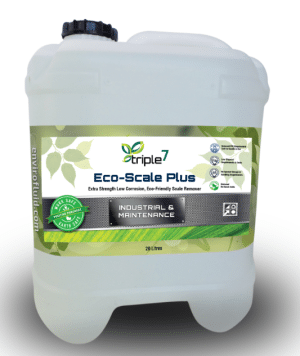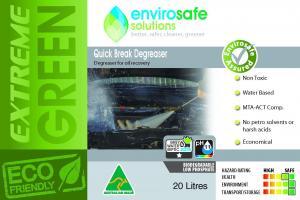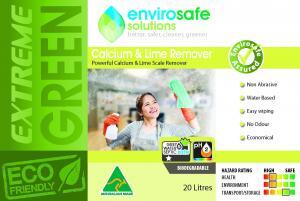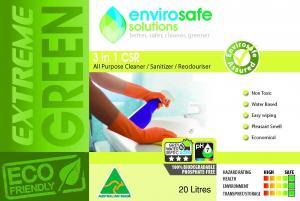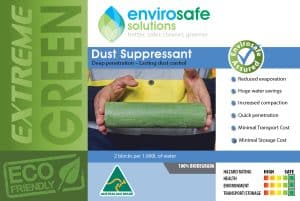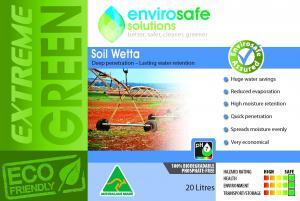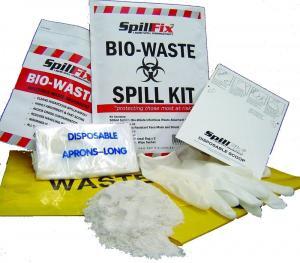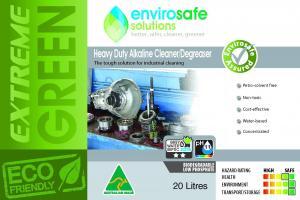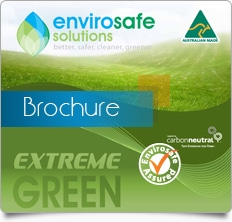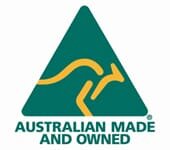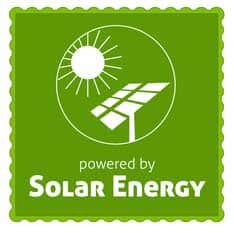 If you’re in the cleaning industry you may be surprised that non-environmental cleaning products can be as dangerous for your health as the bacteria, fungus and other nasties you’re trying to clean up. Toxins and allergens can become airborne and exacerbate respiratory conditions such as asthma. Direct contact can cause skin irritations. The worst toxins can even cause cancer.
If you’re in the cleaning industry you may be surprised that non-environmental cleaning products can be as dangerous for your health as the bacteria, fungus and other nasties you’re trying to clean up. Toxins and allergens can become airborne and exacerbate respiratory conditions such as asthma. Direct contact can cause skin irritations. The worst toxins can even cause cancer.
The statistics prove what many workers already know – daily contact with workplace chemicals is a serious health risk.
Cleaning companies are at the forefront of the war against germs, grease and grime but face another foe in the chemicals found in cleaning products (unless they are using eco-friendly industrial liquids).
According to the Western Australian Department of Commerce each year on average there are 338 cases of lost time injuries or diseases (LTIs/D) related to chemical or substance exposure. Statistics from the department show:
- The average days lost from such incidents is 7370 (or about 22 days lost per incident)
- Lost time injuries and diseases from long term contact with chemicals or substances have been significantly reduced over the five year period from 2004-05 to 2008-09;
- Poisoning, burns and dermatitis are the most typical problems associated with chemicals;
- Eyes, hands, multiple systemic conditions and respiratory system are the body parts most commonly cited as being affected.
The best defense against unnecessary contact with harsh chemicals is to become familiar with chemical labeling. Product warnings are a good starting point – cleaning chemicals labeled ‘Posion’ or ‘Danger’ pose a greater risk than those labelled ‘Caution’ or ‘Warning’.
According to leading environmental cleaning products company Envirosafe Solutions labels can be misleading, as many claims can be ambiguous or false. (Some cleaners may be labelled ‘natural’, ‘environmentally-friendly’ or ‘non-toxic’ but these claims are often not independently verified.)
For this reason each of the Perth suppliers’ products has been independently rated to ensure customers store, transport and handle them safely.
“We are dedicated to finding the safest cleaning solutions available and part of that process involves providing customers with a clear, independent rating system on all our product labels,” Envirosafe Solutions director Murray Simon says.
Chemicals that should be avoided, or handled carefully, include:
- Nonylphenolethoxylates (NPEs), which are found in many cleaning products and which when released into the environment can act as hormone disrupters affecting the reproductive capacity of fish, birds and mammals;
- Antibacterials in particular triclosan found in many skincare products have been linked to cancer and antibiotic resistant bacteria. (Look for eco-friendly liquid products such as Envirosafe Solutions’ antibacterial hand wash which is free of triclosan);
- Ammonia which is common in many floor, bathroom, tile and glass cleaners and can burn skin on contact and irritate respiratory passages.
Cleaning staff may be at the front line in the war against germs but choosing safe, environmentally friendly cleaning liquids and powders will ensure they don’t come under attack from their own side.
For more advice on safe, non-toxic cleaning solutions contact Envirosafe Solutions on 1300 88 90 70 or email info@evss.com.au.
Sources:
http://www.greenerchoices.org/products.cfm?product=greencleaning
http://www.commerce.wa.gov.au/worksafe/content/Services/Facts_and_figures/Priority_areas.html









